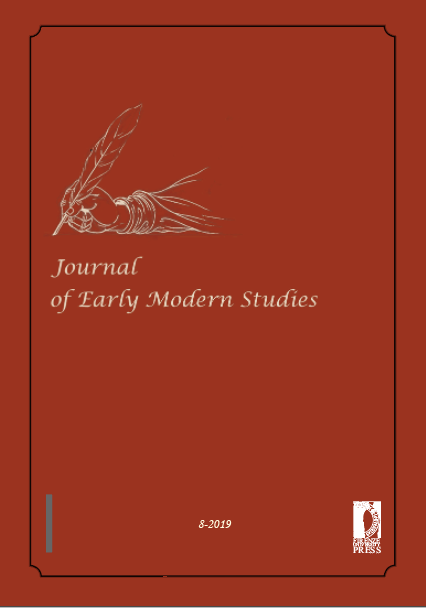‘Pawn! Sufficiently Holy But Unmeasurably Politic’: The Pawns Plot in Middleton’s <em>A Game at Chess</em>
Published 2019-03-14
How to Cite
Abstract
Thomas Middleton’s allegorical play A Game at Chess was perhaps the most sensational cultural event of the English Renaissance. It was so incendiary that a spectator declared it may have constituted a hanging offence, and so popular that the concept of the theatrical run had to be invented to accommodate demand. King James’ response was to shut down the theatres, launch a manhunt for its author and imprison him. Middleton, considered by T.S. Eliot second only to Shakespeare, never wrote again. Despite the allegory’s significance and its infamously transparent message, modern scholars have long struggled to understand it. The article seeks to demonstrate the following. Firstly, that such incomprehension constitutes a major problem for the field. Secondly, that Middleton’s theme is ‘life imitates art’, and that this is systematically accomplished through comparing real-life events to parodic renderings of famous theatrical scenes. Thirdly, that Middleton portrays the main character of White Queen’s Pawn as literally a sacrificial pawn used to collapse the proposed marriage between the future Charles I and the Spanish Infanta, and that this may well be the conceptual genesis of the chess theme. Fourthly, that those responsible for collapsing this Spanish Match were chiefly the Herbert family. Fifthly that White Queen’s Pawn is a personification of a book registered and rushed into print at the very height of the crisis, and dedicated to the heads of the Herbert family, namely Shakespeare’s First Folio. Sixthly, that the First Folio’s portrayal as a sacrificial pawn demonstrates that it was an intensely political publication.


